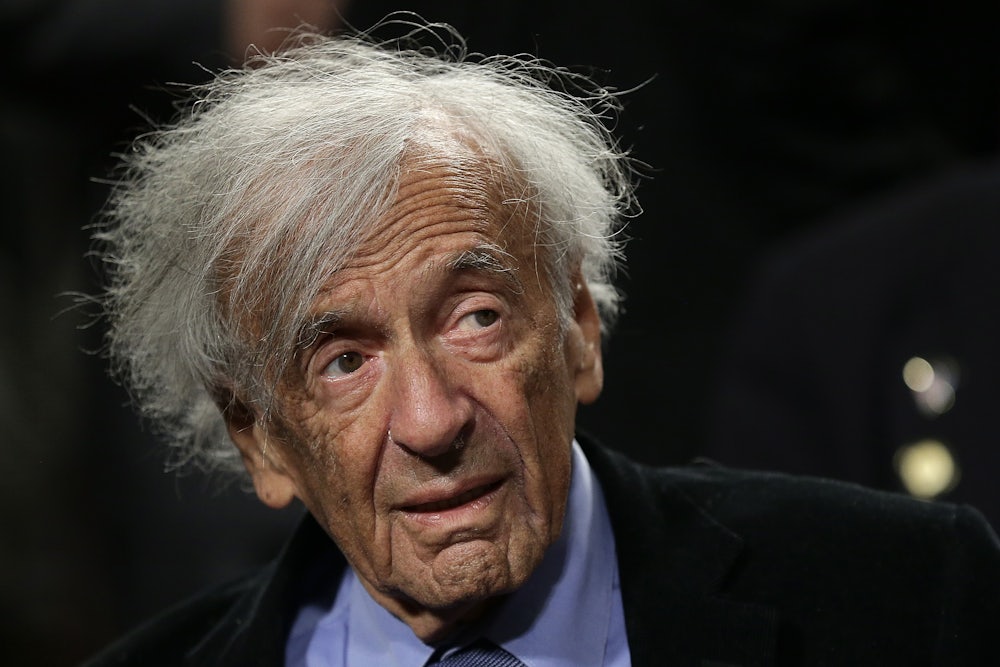Wiesel, who died yesterday at the age of 87, in many ways was the mirror of Anne Frank, the author of the other foundational text of Holocaust literature. Frank was secular, cosmopolitan. The power of her diary partly stemmed from the fact that, if it could happen to the Franks of Amsterdam, then it could happen to anyone. Wiesel, in contrast, was devout, Orthodox, hailing from what used to be Transylvania. Even though he is only 15 years old at the beginning of his memoir Night, he is already on the path toward a life of cloistered study: “By day, the Talmud, at night, the cabbala.” As Philip Roth would write in The Ghost Writer of the universal power of Frank’s diary: “To expect the great callous and indifferent world to care about the child of a pious, bearded father living under the sway of the rabbis and the rituals—that was pure folly.”
But the world did care, if belatedly—Night was first published in English in 1960, and it would take many more years before it became a staple of high school and college courses. (It was chosen for Oprah’s Book Club in 2006.) Sequentially and substantively, it is a kind of sequel to Frank’s diary: It is about what happens when the Nazis get you. If Frank’s diary is the story of a family heroically holding on to the vestiges of civilization in straitened circumstances, then Night is about the total collapse of that civilization, unfolding with the abrupt logic of nightmare: death marches; humans crammed in train cars like cattle; truckloads of babies dumped in fiery ditches; the thick column of smoke rising from the crematory. It is also, emphatically, about the death of Wiesel’s faith in God—his faith in anything at all: “Never shall I forget that nocturnal silence which deprived me, for all eternity, of the desire to live.”
Yet unlike Primo Levi and Tadeusz Borowski and other haunted survivors, Wiesel continued to live, for seemingly no other reason than that, like him, no one would ever forget. RIP.
